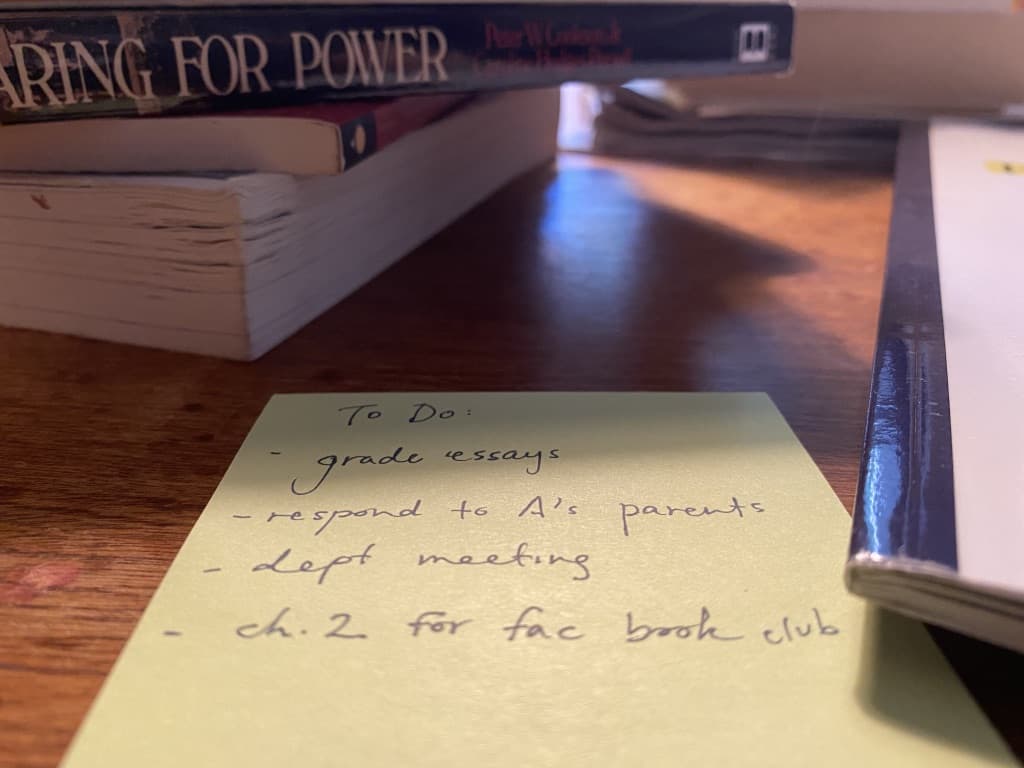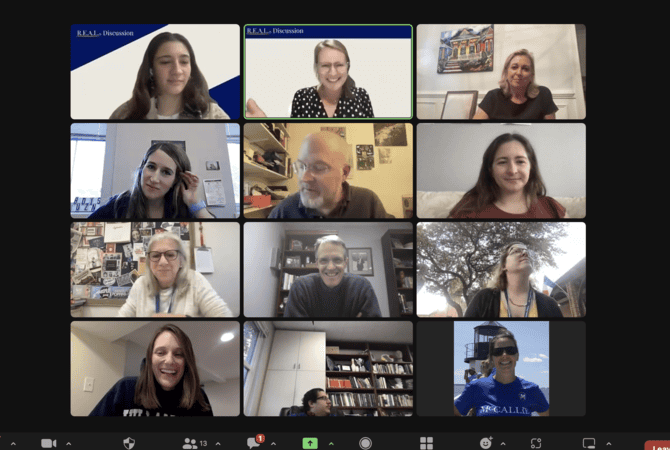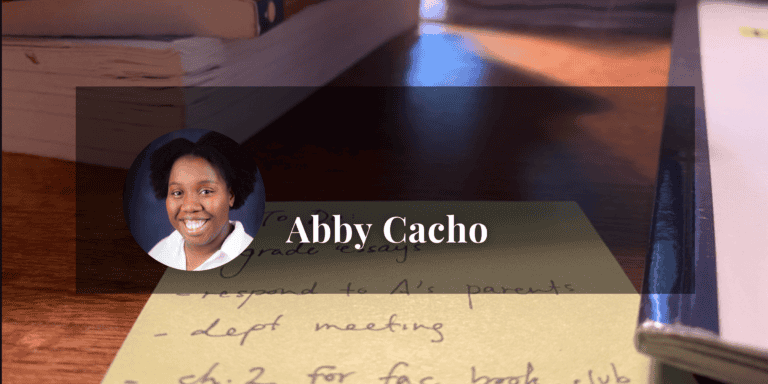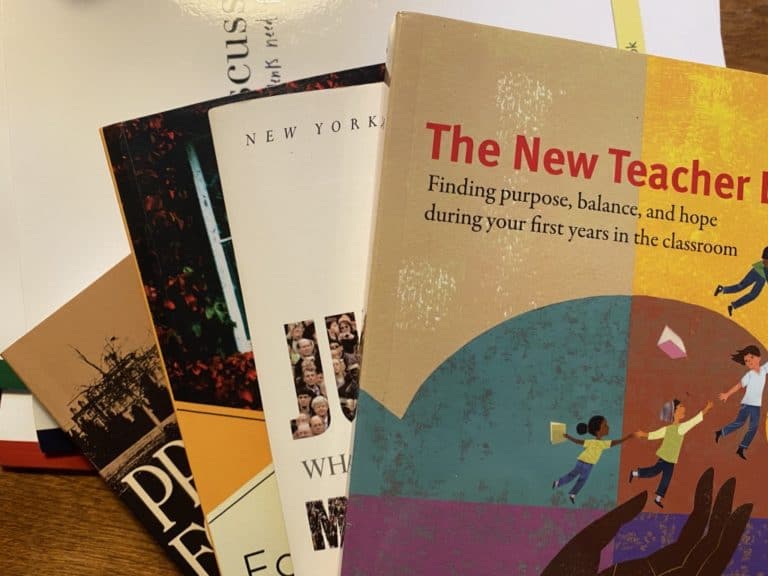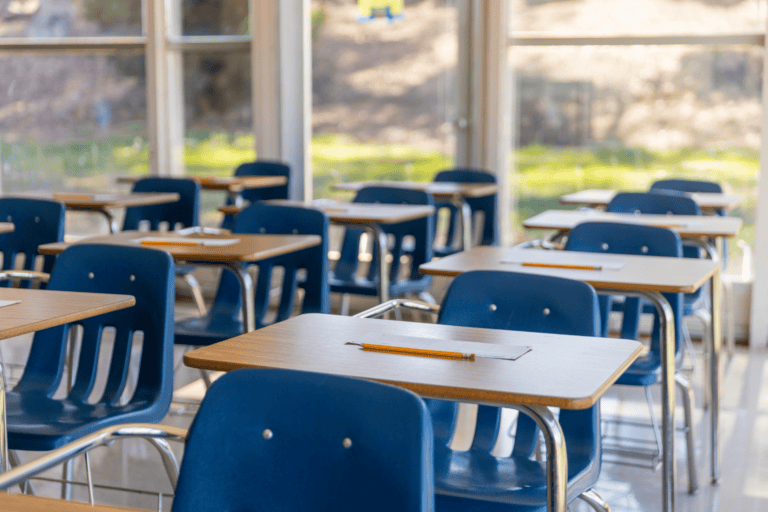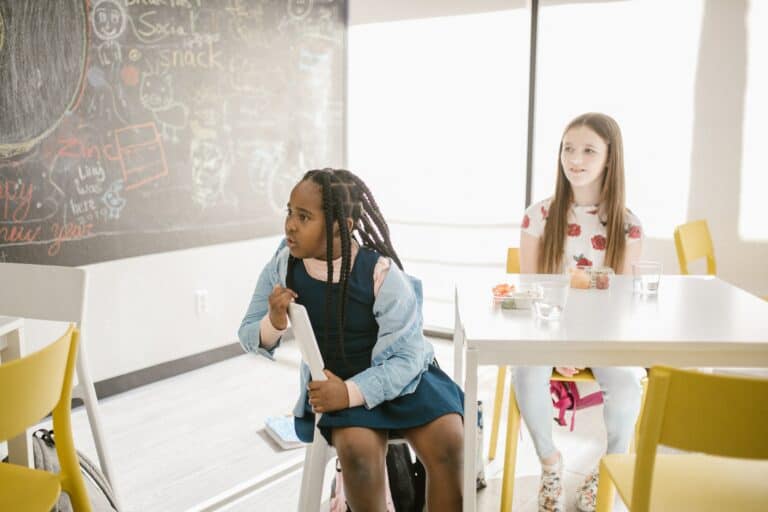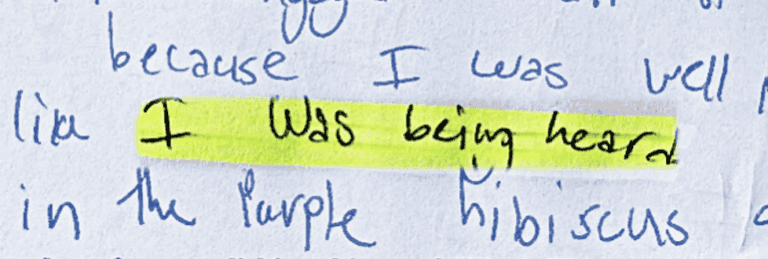Protagonists: Teddy Romeyn
The Protagonists series highlights the main characters of our mission: the teachers out there hustling to make their students feel known, heard, and challenged through student-led discussion.
Teddy Romeyn, Spanish Teacher at Brunswick School, Greenwich CT
Hometown Darien, CT
Favorite teacher growing up: who and why? I have had many great teachers, and most of them—especially because I majored in the Spanish—were Spanish teachers. All of them were great people and genuinely wanted to be a part of their students’ lives, but they were also master teachers. They managed their class discussions so well so that you left class fascinated. It would change how the rest of your day went.

Describe yourself as a student in three words: Curious, disciplined, and a little bit timid. I was always very afraid to fail!
Current City, School, Teaching Assignments (?) Brunswick School, Greenwich CT. I teach four different classes so that we can keep the classes small. Spanish II Honors, Spanish III, Spanish III Honors, and Spanish IV Honors. The last is an advanced language course, which is really discussion-based. I also coach two seasons of sports and have an advisory.
Favorite historical figure (or best line from history?) Juan Domingo Perón. He’s the most interesting — not exactly “favorite” as a person, as he is a controversial figure in Argentine history — but I studied him a lot in college, and found him to be an interesting lens through which to learn about Argentina in the twentieth century.
Favorite literary character (or best line from novel?) Aragorn from Lord of the Rings.
Favorite school supply? I always have a notebook, and I always spend about 45 minutes trying to find the right one for the school year. I’m very picky about finding one that I like!
Pet peeve about class (student-led?) discussion? For me, especially as a young teacher who’s still trying to figure it out, I’ll have students who will try to take the conversation in a completely different direction than what I had planned. Then I start to get worried, and I feel I have to reel the entire class back in. My mentor, though, challenged me to let it happen and then take advantage of the tangent. I’m trying to learn to do that, instead of letting it bother me.
Favorite moment of class discussion? When the energy of the room changes because the students are engaged and in the present during the discussion. When the students are really captured by an idea and are genuinely digging into it.
Biggest challenge to good discussion in a virtual classroom? The cliche answer, of course, is that Zoom in big groups is very awkward. It’s not smooth. It’s hard for students to get over the fact of cutting people off unintentionally. Also, there is something about being in a common space together, where everyone is in the same environment, that makes discussion a complete experience. On Zoom, you don’t know what students are looking at, you don’t know what distractions are around, and not knowing (as a teacher) whether students are having the same experience is worrying.
Text you count on to inspire conversation? In the spring this past year, my Spanish 300 classes researched the 17 sustainable development goals established by the United Nations. They did an awesome job collaborating with each other, sharing information, sources and ideas about how countries in the Spanish-speaking world are working towards these goals. This source started so many conversations about the environment, politics, and much more.
What do you nerd out about? Right now, I’m reading about the history of Lisbon, Portugal. I lived in Spain for a year, and Portugal is right next to it but so different. I’m very interested in learning about the similarities, differences and collisions between Spanish and Portuguese cultures and history. Outside of my work, I nerd out about NFL football.
What is your wish for this world? One thing that’s been on my mind is the way that the pandemic has further revealed the inequities that exist in America. You can’t help but wonder: is this the moment where we finally start seeing change? Or is it just another moment in history? My hope is that these moments are the straws that break the camel’s back and accelerate change.
When historians recount 2020, what will they be especially fascinated by? I think they’ll look back and think of inequality — socioeconomic, racial, political divisions — all of these extremes will create an overarching theme of inequality. The Covid-19 pandemic will be a lens through which they analyze these inequities.
One prediction for the future of schools? In 20 or 30 years, schools will be doing things we haven’t seen yet across the secondary level, like research opportunities and global studies programs that get students travelling—things that make academic experiences exciting and broad. Before this happens, however, we have to make sure that all schools around the country have the resources that they need to support their students.
Best advice given to you by a department chair or supervisor? Be concise and efficient. I was an assistant cross-country coach at my last school, and the head coach of the team modeled this for me. He ran practices so efficiently that the kids were always dialed in and fully engaged. Shorter can be better. If anything, it’s an investment in the long term to keep things concise on a daily basis.
Educator-Influencer you count on? First place you turn for classroom advice? There isn’t one person in particular I look to. I always think that someone probably has a better idea than I do, so I’ll just ask around the office for someone’s perspective.
Better discussions will lead students to become better informed, and teach them how to dig deeper into complex problems. With the huge mix of media that we’re exposed to today, we’re losing sight of the process of really reading into something, closely and deeply understanding a concept.
